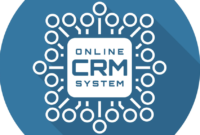Automatisation in CRM: Streamlining Customer Relationship Management for Efficiency and Growth
Introduction
In today’s fast-paced business environment, organizations seek ways to optimize operations and enhance customer interactions. Automatisation in Customer Relationship Management (CRM) represents a transformative approach to achieving these goals. By integrating automation into CRM systems, businesses can streamline workflows, improve efficiency, and deliver personalized customer experiences at scale.
This article explores the concept of CRM automation, its key benefits, practical applications, and how it is shaping the future of customer relationship management.
What is CRM Automation?
CRM automation refers to the use of technology to automate repetitive and manual tasks within a CRM system. This involves leveraging tools like artificial intelligence (AI), machine learning (ML), and workflow automation to handle processes such as data entry, lead management, customer communication, and analytics.
The primary aim of CRM automation is to free up human resources for more strategic tasks while ensuring consistency and accuracy in operations.
Benefits of CRM Automation
1. Improved Operational Efficiency
Automation eliminates time-consuming manual tasks, such as updating contact records and scheduling follow-ups. This allows teams to focus on high-value activities like building customer relationships.
2. Enhanced Customer Experience
Automated processes ensure timely and personalized interactions, such as sending birthday greetings or follow-up emails, leading to higher customer satisfaction and loyalty.
3. Accurate Data Management
Automation reduces the risk of errors in data entry and ensures that customer information is consistently updated and easily accessible.
4. Cost Savings
By optimizing processes and reducing the need for manual labor, CRM automation helps organizations save costs while maintaining high productivity levels.
5. Better Insights
Automated analytics and reporting tools provide real-time insights into customer behavior and campaign performance, enabling data-driven decision-making.
Key Features of CRM Automation
1. Workflow Automation
Automated workflows handle repetitive tasks such as sending welcome emails to new leads or assigning support tickets to the right team members.
2. Lead Scoring
CRM systems use algorithms to automatically score leads based on their behavior and engagement, helping sales teams prioritize prospects with the highest potential.
3. Email Marketing Automation
Automated email campaigns allow businesses to send personalized messages to customers based on their preferences, behavior, and lifecycle stage.
4. Customer Support Automation
Chatbots and automated ticketing systems streamline customer support by addressing common queries instantly and routing complex issues to the right agents.
5. Sales Process Automation
From automated follow-up reminders to generating invoices, CRM automation supports the entire sales lifecycle.
6. Analytics and Reporting
Automated data analysis tools generate detailed reports, track key performance indicators (KPIs), and identify trends without manual intervention.
Applications of CRM Automation Across Industries
1. Retail
Retailers use CRM automation to manage loyalty programs, send personalized promotions, and track customer purchase history to improve upselling and cross-selling efforts.
2. Healthcare
Healthcare providers leverage automated appointment reminders, follow-up notifications, and patient data management systems to enhance service quality.
3. Financial Services
Banks and financial institutions use CRM automation to streamline loan processing, track customer investments, and deliver tailored financial advice.
4. Hospitality
Hotels and travel agencies implement automated booking confirmations, itinerary updates, and customer feedback collection to enhance guest experiences.
5. Education
Educational institutions use CRM automation to manage student inquiries, automate admission processes, and send course-related updates.
How to Implement CRM Automation Successfully
1. Define Clear Objectives
Identify specific processes and pain points that can benefit from automation. Align these objectives with your overall business strategy.
2. Choose the Right CRM Tool
Select a CRM platform that offers robust automation features tailored to your industry and organizational needs.
3. Train Your Team
Ensure that all employees understand how to use automation tools effectively. Provide training to address potential resistance and maximize adoption.
4. Integrate with Other Tools
Connect your CRM system with other software, such as marketing automation platforms, project management tools, or ERP systems, to create a seamless workflow.
5. Monitor and Optimize
Regularly assess the performance of automated processes and make adjustments to improve efficiency and effectiveness.
Challenges and Solutions
1. Resistance to Change
Employees may be hesitant to adopt automation tools. Address this by demonstrating the benefits and providing adequate training.
2. Integration Issues
Compatibility with existing systems can be a challenge. Choose a CRM platform that offers flexible integration options.
3. Over-Automation
Over-relying on automation can lead to impersonal interactions. Balance automation with a human touch to maintain customer trust.
The Future of CRM Automation
As technology evolves, CRM automation is poised to become even more sophisticated. Emerging trends include:
1. AI-Driven Automation
Artificial intelligence will enhance CRM automation by enabling predictive analytics, sentiment analysis, and hyper-personalization.
2. Voice-Powered CRM
Voice assistants and natural language processing will allow users to interact with CRM systems using voice commands.
3. Integration with IoT
The Internet of Things (IoT) will enable CRM systems to collect and analyze data from connected devices, offering deeper customer insights.
4. Automation-First CRM Platforms
Future CRM tools will prioritize automation, making it a central feature of their offerings.
Conclusion
Automatisation in CRM is revolutionizing how businesses manage customer relationships and streamline operations. By automating repetitive tasks, organizations can improve efficiency, enhance customer experiences, and gain valuable insights into their target audience.
As automation technologies continue to advance, CRM systems will play an even more significant role in helping businesses stay competitive and customer-centric. Embracing CRM automation today is a strategic investment in tomorrow’s success.




